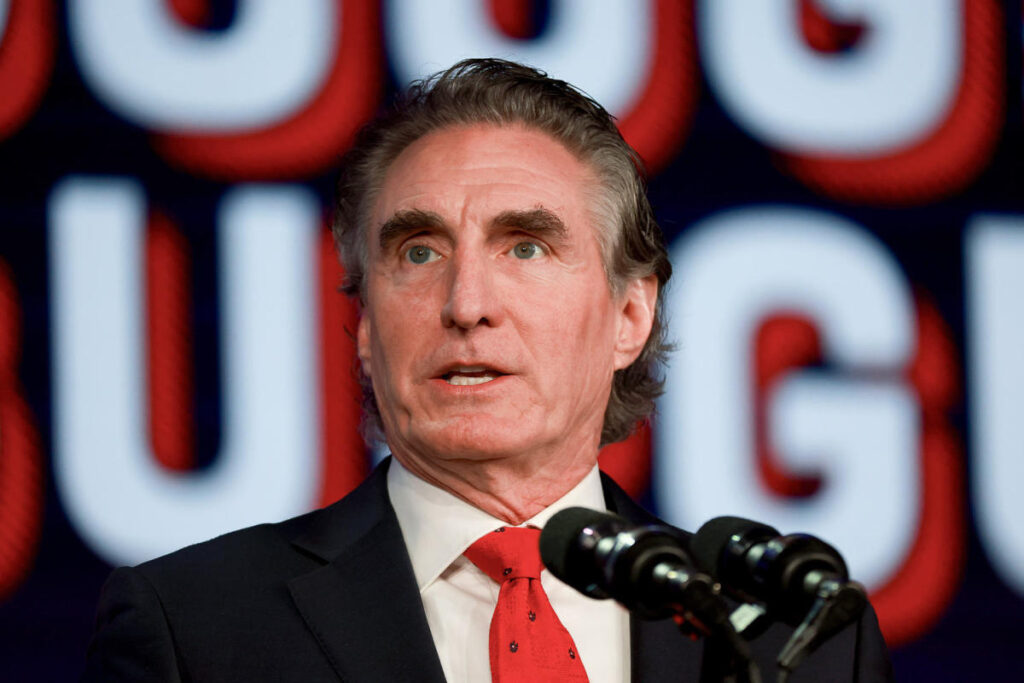North Dakota’s Republican Governor Doug Burgum recently addressed concerns regarding a comedian’s controversial remarks about Puerto Rico made during a campaign rally for former President Donald Trump. The comedian, Tony Hinchcliffe, faced backlash for calling Puerto Rico “a floating island of garbage,” a statement that drew groans from the audience rather than approval. Defending the sentiments of Trump supporters, Burgum emphasized that such comments do not represent the views of the broader base, arguing that the reaction in the rally demonstrated a lack of support for Hinchcliffe’s remarks. He further contrasted the comedian’s visibility with President Joe Biden’s recent statements questioning the integrity of the nation’s political climate and the rhetoric used by Trump supporters.
Burgum’s comparisons extended to Biden’s comments made during a Latino voter outreach teleconference, where he referred to Puerto Ricans as “good, decent, honorable people,” but criticized Trump supporters by labeling their rhetoric as garbage. This juxtaposition highlights the stark contrast in the personas of public figures and their impacts on voter sentiment. While Biden’s statements were interpreted as direct criticisms of Trump supporters, Burgum viewed Hinchcliffe’s jokes as largely inconsequential amid the broader political landscape.
In addressing the implications of such statements on the upcoming election, Burgum expressed skepticism about their impact. He argued that the ongoing political theatrics and name-calling are customary in the pre-election period and emphasized that voters ultimately focus on their individual circumstances rather than isolated remarks by public figures. His comments reflect a broader narrative in American politics where divisive rhetoric, though often criticized, is commonplace and historically positioned during election cycles.
The governor reiterated that voters would prioritize substantive issues over fleeting jokes or derogatory comments. According to Burgum, the art of political discourse, especially leading up to elections, often involves a level of exaggeration and confrontation that should not be mistaken for genuine sentiment. His perspective is rooted in a belief that American voters have become accustomed to this pattern and are capable of discerning between jest and serious critique when casting their ballots.
Burgum also clarified that discussions surrounding public criticism, especially from Biden towards Trump supporters, diverged significantly from the jests made by comedians. He contended that the critique of supporters by a sitting president holds a heavier weight than the antics of a less-known comedian. Aligning himself with the narrative that electoral decisions are influenced more by voters’ experiences than the emotional weight of political comments, he emphasized a pragmatic worldview regarding electoral politics.
Overall, the discourse surrounding humor in political campaigns illustrates the complexities of voter engagement in a polarized environment. As Burgum engages with this dialogue, he mirrors sentiments common among party leaders who strive to downplay inflammatory remarks while refocusing attention on the economy and voter welfare as deciding factors in an election that promises to be contentious and heavily scrutinized. In a time marked by division, understanding the nuances of public sentiment and the relevance of rhetoric in politics remains crucial in directing voters’ attention to their realities.

